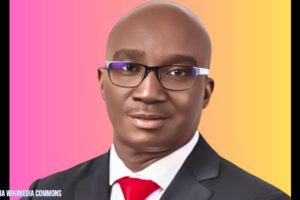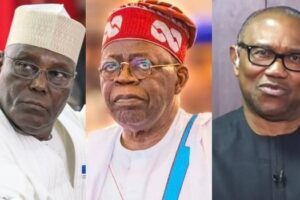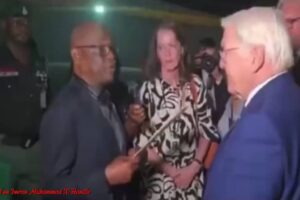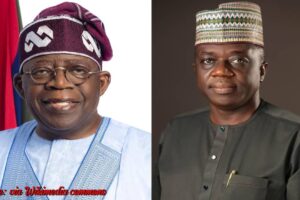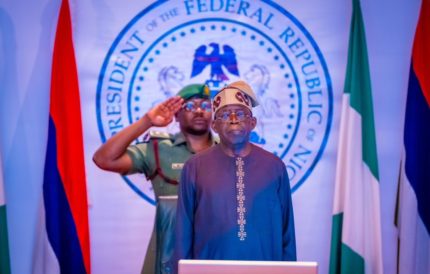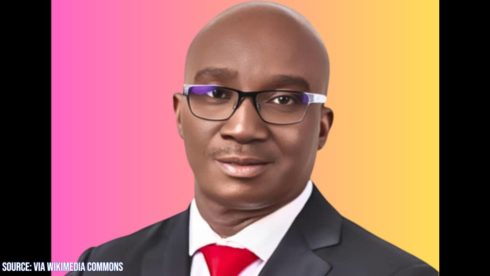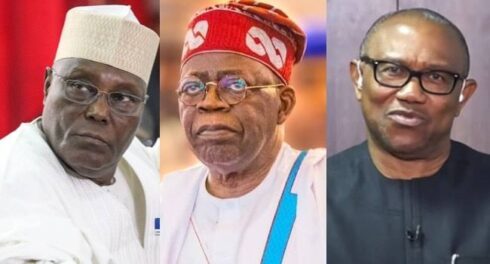President Bola Ahmed Tinubu acknowledged the growing frustrations among Nigerians regarding the current economic conditions. He expressed empathy with citizens, recognizing their struggles as inflation and rising costs continue to impact daily life. His statement, “People say we’re hungry; yes, I understand that,” resonated with many, capturing the essence of the hardship many are enduring. However, President Bola Ahmed Tinubu urged patience, citing the difficult but necessary reforms his administration is implementing.
With the country facing economic uncertainties, the president reiterated that the government’s actions aim to stabilize the economy and build a more sustainable future. He dismissed the notion of returning to a system of quick fixes, saying, “There is no free beer parlour anymore.” This metaphor highlighted his administration’s commitment to ending unsustainable policies of the past while emphasizing that recovery will take time.
President Bola Ahmed Tinubu: Tackling Hunger and Poverty: Government’s Plan
In light of increasing food insecurity, President Bola Ahmed Tinubu acknowledged that hunger remains a critical issue across the country. The government has been under pressure to act swiftly as food prices continue to soar, making it difficult for many Nigerians to afford basic necessities. The administration has promised to introduce various palliative measures, including food subsidies and agricultural support, to mitigate the effects of rising costs.
President Bola Ahmed Tinubu’s call for patience was met with mixed reactions. While some citizens appreciated the president’s transparency, others expressed frustration, feeling that they have waited long enough for relief. Critics argue that the slow pace of economic recovery could lead to heightened unrest if immediate action is not taken to address the pressing issue of hunger.
Economic Reforms: No Easy Fixes, Says President Bola Ahmed Tinubu
President Bola Ahmed Tinubu’s remark that “there is no free beer parlour anymore” reflects the president’s stance on economic reform. He emphasized that the days of unsustainable government spending and quick economic fixes are over. The Tinubu administration has embarked on a series of reforms aimed at correcting the structural issues that have plagued Nigeria’s economy for decades.
These reforms, while deemed necessary by economists, have resulted in short-term pain for many Nigerians. The removal of fuel subsidies and exchange rate adjustments have led to increased costs for essential goods and services, further straining household budgets. President Bola Ahmed Tinubu argued that these policies will ultimately lead to a more stable and prosperous economy, but citizens must remain patient during the transition.
President Bola Ahmed Tinubu – Public Reaction: Patience vs. Desperation
President Bola Ahmed Tinubu’s plea for patience has sparked a debate among Nigerians, with opinions divided on the way forward. Supporters of the president argue that his administration is making tough but necessary decisions that previous governments avoided. They believe that short-term discomfort is a price worth paying for long-term stability and prosperity.
However, many citizens, particularly those in lower-income brackets, are growing increasingly desperate. They point to the rising cost of living and inadequate government assistance as reasons for their frustration. Public protests have erupted in various regions, with demonstrators demanding more immediate and substantial relief measures to address their concerns.
Government’s Efforts to Calm Tensions
President Bola Ahmed Tinubu administration has responded to growing public discontent by rolling out additional support measures. In an effort to ease the financial burden on citizens, the government has announced plans to provide cash transfers to vulnerable households and expand social welfare programs. These initiatives aim to cushion the impact of rising inflation and provide immediate relief to those most affected by the economic downturn.
Despite these efforts, many Nigerians remain skeptical. Critics argue that the government’s response has been too slow and that the measures being implemented are insufficient to address the scale of the crisis. The administration faces the challenging task of balancing long-term reforms with the need to provide immediate relief to its citizens.
The Path to Economic Recovery
President Bola Ahmed Tinubu has assured Nigerians that the road to economic recovery, though difficult, will lead to a more prosperous future. He outlined his administration’s long-term vision, which includes diversifying the economy, investing in infrastructure, and improving governance. These efforts, President Bola Ahmed Tinubu believes, will help Nigeria overcome its current challenges and lay the foundation for sustainable growth.
While the president’s optimism is clear, the success of his economic recovery plan will largely depend on the government’s ability to execute its reforms effectively and maintain public trust. As Nigeria navigates through this period of uncertainty, the nation’s patience will be tested, and the administration’s capacity to deliver tangible results will be closely watched.
Table of Contents
Discover more from OGM News NG
Subscribe to get the latest posts sent to your email.

